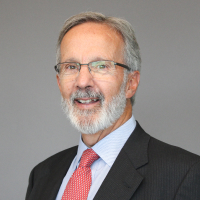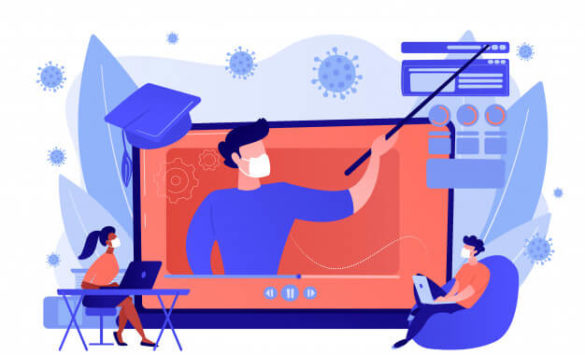Last week members of the national workers’ compensation community had an opportunity to step away from their niche practices and learn from industry leaders about what the pandemic is doing to our industry and more importantly how well we have responded.
The Southern Association of Workers’ Compensation Administrators (SAWCA) is a first-rate regulatory group dedicated to advancing and improving how employers function within our numerous statutory systems and how injured workers are treated. Its executive director Gary Davis, a very able administrator, will tell you Southern in its name describes a state of mind and is not linked to geography. July is when they hold their summer meeting. Like many organizations they struggled with how to keep up their good work and do so safely. The solution was to affiliate with Bob Wilson’s workerscompensation.com another key industry player and hold the meeting remotely, via a webinar. And hold a meeting they did!
Over two days those in vicarious attendance, we were able to hear thoughtful discussions from leading workers’ compensation executives from Kentucky to Washington State, from Rhode Island to Colorado, and multiple states in-between—in total 20 states were represented. We learned from the speakers that a medical pandemic was not an anticipated event. It caught us all off guard and generally ill prepared. After the crisis hit, workers’ compensation agencies shut down, stopped doing business as usual, and then reopened using a variety of electronic formats. It was heartening to learn how after being initially traumatized, most states have adjusted to this unanticipated cataclysmic event in a thoughtful and reasonable fashion. Executives discussed claim numbers, COVID claims, the introduction of presumptions (assumptions in Washington), telemedicine, settlements and working from home. The moderator, Judge Deneise Lott from Mississippi, did nice work keeping the discussion focused and topical.
Day 1: Learning the Impact of COVID-19 on Employers
An employer panel filled the afternoon. This was a new feature at a few national meetings. Employers are obviously key players in this industry and their voices need to be heard. As an aside, it is difficult to have a comparable panel of injured workers at a national meeting. Having one at state or smaller meetings is important. Mark Walls from Safety National moderated. He had employers from a wide range of businesses and industries. It was valuable to learn how different industries adapted to this crisis. Certain professions moved home and worked from there. Obviously, manufacturing could not make that adjustment, nor could those who work in the hospitality industry. Mark has been concerned with regulatory complexity confronting employers who have multi-state locations. This is a very real and legitimate concern. Uniformity in something as basic as a first report of injury would make claims processing so much easier for the employer community. Add to the lack of uniformity, the introduction of COVID-19 presumptions either by statute or executive fiat and complexity is raised to a whole new level. The employer panel’s insights, observations, and concerns were a helpful addition to the meeting.
Day 2: Learning about New Industry Risks, Challenges, & Silver Linings in 2020
The next day began with a panel of national insurance executives. The moderator, Max Koonce, announced he planned to cover specific broad topics in light of the new risks and challenges compared to what the industry anticipated in January 2020. Changes that have been made framed the initial inquiry. Working from home seemed to top the list. Premium rates were discussed as were insureds whose businesses were failing, and bankruptcy was in the mix. It was no surprise presumptions were discussed. As one insurance executive observed, “sometimes optics matter more than facts.”
The pandemic’s legacy will be: telemedicine is here to stay and the workers’ compensation “community feel will change”… it is not evident it will be lost forever, the day of the in-person mediation is history, and administrative efficiencies may allow for work being accomplished with fewer employees.
The rush to presumptions is seen as a balance tipping exercise to demonstrate to certain workers that they would be protected. Remote work was considered and how that work fits into class codes and traditional risk. It was nice to see a question was posed on the positives of this crisis. Are there any and if so, what are they? Fewer motor vehicle accidents are being reported. The National Council of Compensation Insurance (NCCI) has reported in recent years that some of its most expensive claims are made by employees who traditionally do not do what we might consider dangerous work until they get behind the wheel of a car. Motor vehicle accidents frequently result in very costly claims. Technology has made adaptation possible and real. By linking many workers to their offices with the appropriate technology, they can do their work without missing a beat. Administrative efficiencies have been developed that will likely be with the industry for the long-term.
The meeting concluded with a favorite. Bob Wilson moderated a panel with a representative mix of those who work in our industry. Bob is skilled at making the serious business we do, fun. These are my impressions of the key take-aways from this session. In some states, it will be a long time before jury trials return. This is not workers’ compensation related but it is an interesting observation. Many states are experiencing significant case processing backlogs. Telemedicine and virtual hearings are being broadly used. Is the security in these networks safe? It was felt many systems have risen to the security challenge and have made their products safer.
The pandemic’s legacy will be: telemedicine is here to stay and the workers’ compensation “community feel will change”… it is not evident it will be lost forever, the day of the in-person mediation is history, and administrative efficiencies may allow for work being accomplished with fewer employees.
My two-day SAWCA interlude is over. I learned new things, listened to observations I had not heard before, had my internal batteries modestly refreshed and saw some old friends via conference connection. Bravo SAWCA for a job well done and kudos to all the panelists and moderators who shared their expertise, impressions, and positive thinking with those of us who were sitting in our homes watching the show. I am now back to the serious business of helping the world appreciate the value of MSA professional management. It is nice to be back.
Want to learn more about how the industry is adapting to COVID-19?


